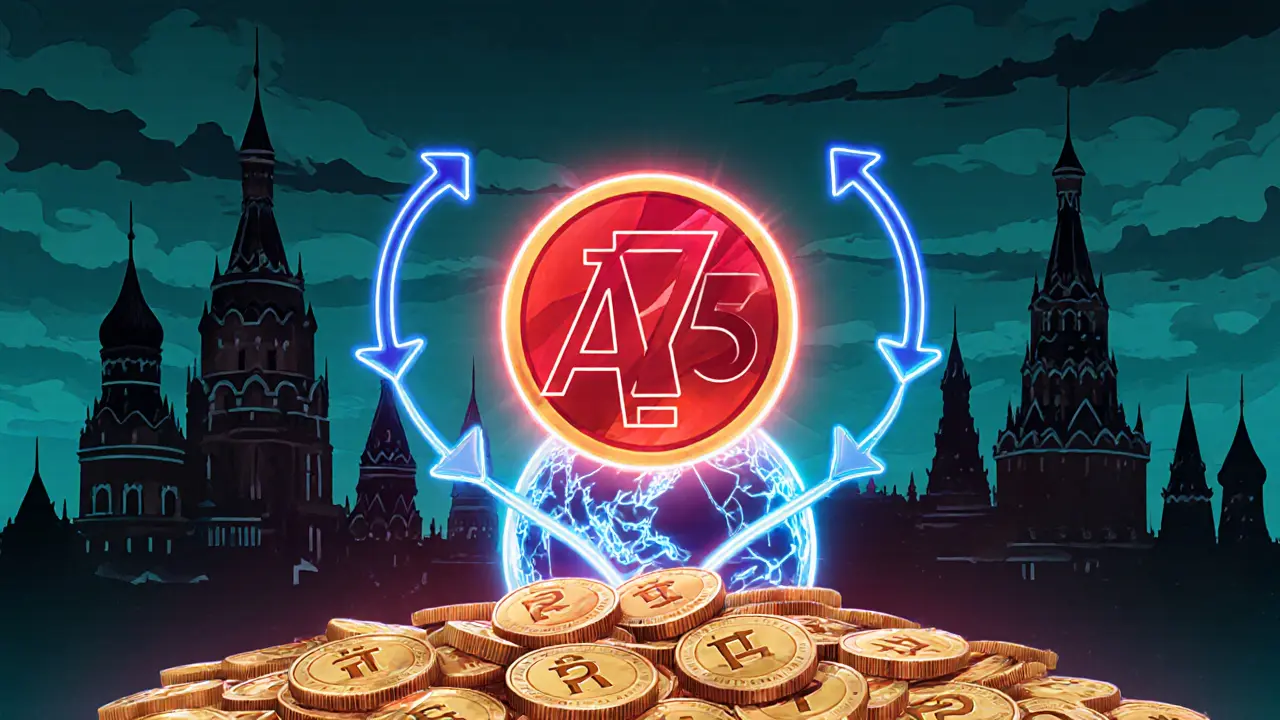Russia Cryptocurrency Sanctions Evasion
When looking at Russia cryptocurrency sanctions evasion, the practice of using crypto tools to skirt Western financial restrictions on Russian actors. Also known as crypto sanctions circumvention, it usually depends on loopholes in the global financial system.
Key Players and Tools
The most common gateway is a no‑KYC exchange, a platform that skips identity verification and lets users trade without providing personal data. Because these services hide who’s behind each wallet, they become attractive for actors trying to move money under the radar. They often operate on offshore servers, accept fiat via untracked payment methods, and list dozens of low‑liquidity tokens that obscure the real flow of value.
Germany’s Operation Final Exchange, a 2024 crackdown that seized servers and data from 47 Russian no‑KYC exchanges showed how authorities can disrupt these networks. The Russia cryptocurrency sanctions evasion network relies heavily on the kind of platforms targeted in this raid. The operation cut off access to European banking channels and exposed transaction logs that helped trace illicit moves.
Effective sanctions enforcement, the legal tools governments use to block prohibited financial flows now relies on blockchain analytics, know‑your‑customer (KYC) upgrades, and international cooperation. When exchange operators ignore AML rules, they risk being blacklisted, losing banking relationships, and seeing their users’ assets frozen.
Many of the micro‑cap tokens you see in our reviews—like KittySpin, SHIBSC, or Pandana—are listed on the same no‑KYC venues. Their tiny liquidity pools make it easy to wash money or hide large transfers behind normal trading activity. Airdrop campaigns can also be abused: scammers claim a free token, collect wallet addresses, and then funnel those wallets into sanctioned channels.
If you’re monitoring the market, watch for a few tell‑tale signs: abrupt spikes in trading volume on obscure pairs, sudden listings on newly launched exchanges, and IP addresses linked to known Russian VPN services. Using analytics tools that flag “mixing” transactions or repeated transfers to the same wallet can help you spot evasion early. Keeping an eye on regulatory updates—especially from the U.S., EU, and Germany—will also give you a heads‑up before a platform gets blacklisted.
Below you’ll find a curated set of articles that break down the tokens, exchanges, and legal actions mentioned here. From deep dives on specific coins to detailed reviews of the exchanges targeted by Operation Final Exchange, these pieces give you the data you need to stay informed and protect your investments.
Russia’s Crypto Playbook: How Digital Tokens Bypass Western Sanctions
Explore how Russia leverages the A7A5 token, Grinex exchange, and Kyrgyz banking links to dodge Western sanctions, and see what regulators are doing to stop it.
read more

